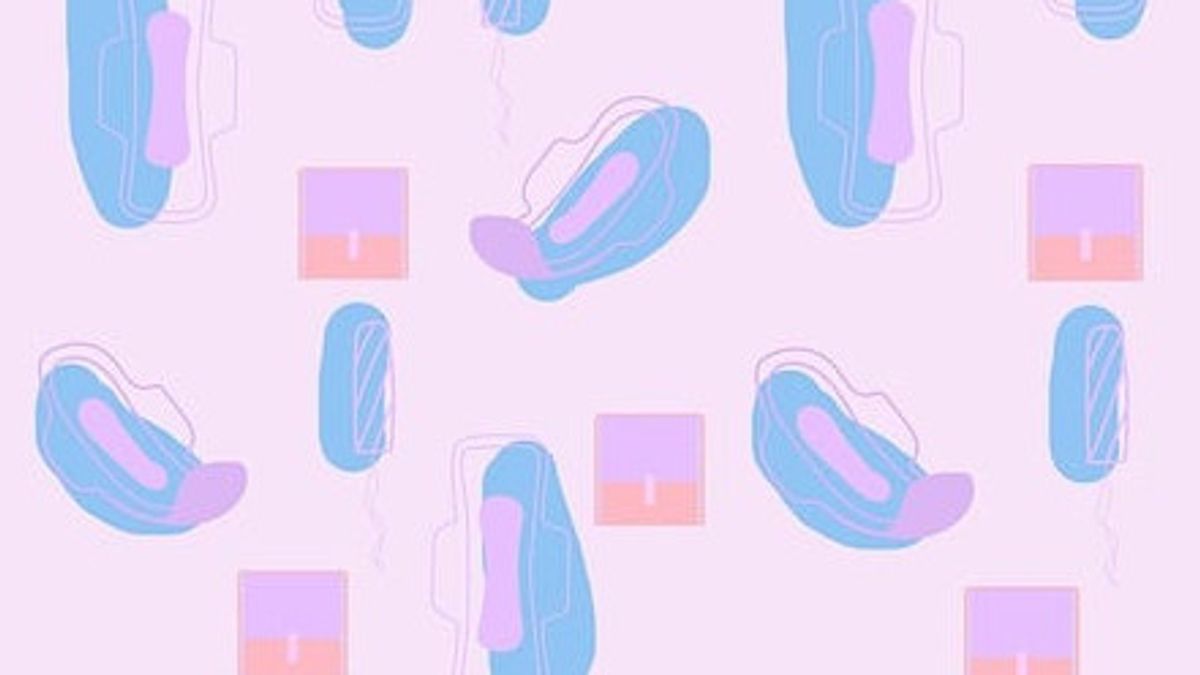JAKARTA - During menstruation, women use sanitary napkins to keep their activities as usual without worrying about leaks. However, if you choose sanitary napkins that are not guaranteed for safety and the way they are used is also inappropriate, it is at risk of causing various skin problems such as irritation and rashes.
On the other hand, along with the increasing number of environmental problems that occur around the world, ranging from global warming, climate change and the risk of the end of natural resources, products are needed that are not only in accordance with consumer needs, but are also able to reduce environmental burdens.
In line with this thought, Charm introduced environmentally friendly sanitary napkin products, namely sanitary napkins that use Bio Materials: Charm Cooling Fresh Bio and Charm Daun Sirih Bio in limited editions. These two products are available in 2 variants, namely Day for day and Night for night. Bio Material comes from nature so that it is relatively safe for consumers and the environment, also in line with the goal of realizing a sustainable environment.
The Charm Cooling Fresh Bio and Charm Kaun Sirih Bio products, which were launched in this limited edition, replaced the plastic components derived from petroleum with Bio Materials derived from sugarcane plants, limestone, botanical oils, and natural resins. Then, all parts of sanitary napkins that come directly into contact with the skin also use 100% soft Bio fiber, making these two products friendly to women's environment and consumers," said President Director of PT Uni-Charm Indonesia Tbk, Takumi Terakawa in a media statement, Friday, June 28.
The packaging of these two products contains the logo of the International Forest Verification system, namely PEFC (Programme for the Endorsement of Forest Certification) which indicates that all raw materials used in this product come from certified forests, and forests that are preserved. The realization of SDGs is a purpose of our Company. Therefore, through environmentally friendly products we are determined to contribute to the future generation and sustainability of Earth.
SEE ALSO:
The use of sanitary napkins can also reduce skin irritation. Here are tips for choosing sanitary napkins that are safe from skin and genital specialists, dr. Kardiana Purnama Dewi, Sp. D. V. E.
Choose a sanitary napkin that already has a distribution permit from the Ministry of Health of the Republic of Indonesia. In addition to paying attention to safety, maintaining product quality is also a crucial aspect. Avoid buying sanitary napkins that are nearing an expiration date, because this can result in a decline in product quality.
Furthermore, to ensure product cleanliness, it is important to check product packaging so that it is not damaged, not open, and not wet. This aims to prevent contamination by foreign objects that can affect the quality and safety of the use of sanitary napkins.
Before using sanitary napkins, make sure both hands are clean. Even though you are busy with activities at school or work, it is advisable to change sanitary napkins every 3 hours, even when menstruating is not too much.
On days with more menstrual flow, increase the frequency of replacement as needed. If sanitary napkins are continuously used for a long period of time, it can result in itching, rash and irritation, so changing sanitary napkins periodically is very important. If you experience skin problems such as itching in the feminine area, most of them will disappear by themselves. However, if the symptoms continue, it is advisable to consult a doctor. During menstruation, keep the feminine area clean by washing using warm water every time you replace sanitary napkins to prevent bacteria and irritation.
Then what is no less important, avoid wearing too tight underwear, because this can interfere with the air circulation in the feminine area. By getting used to doing the above routinely, it is hoped that the health and cleanliness of the feminine area will be maintained optimally.
The English, Chinese, Japanese, Arabic, and French versions are automatically generated by the AI. So there may still be inaccuracies in translating, please always see Indonesian as our main language. (system supported by DigitalSiber.id)


















